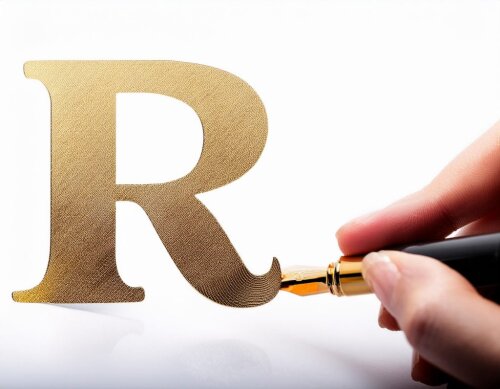Best International Lawyers in Brazil
Share your needs with us, get contacted by law firms.
Free. Takes 2 min.
Or refine your search by selecting a city:
List of the best lawyers in Brazil
About International Law in Brazil
International law in Brazil involves the set of legal norms governing relationships between states and other entities internationally recognized. This includes treaties, international agreements, and mechanisms for resolving disputes between private individuals or groups across borders. Brazil is a member of numerous international organizations, and its legal framework incorporates many international legal instruments. The country adheres to principles of international law in areas such as human rights, trade, environment, and diplomacy.
Why You May Need a Lawyer
Individuals and businesses may require legal assistance in international law for several reasons. These can include entering into treaties or international contracts, dealing with disputes involving foreign entities, navigating regulatory compliance for international trade, handling immigration issues, or addressing human rights violations. A lawyer specializing in international law can provide valuable guidance and representation to ensure compliance with both Brazilian and international legal standards.
Local Laws Overview
Brazil’s legal system integrates international law through its Constitution, which allows for the incorporation of international treaties and conventions into domestic law. Brazilian courts often reference international jurisprudence, especially regarding human rights and environmental protections. Notably, Brazil is a signatory to several significant international trade agreements and conventions on arbitration, which influence commercial disputes involving foreign parties.
Frequently Asked Questions
1. What is the role of international treaties in Brazilian law?
International treaties in Brazil, once ratified, are incorporated into national law and have a legal standing that often supersedes domestic laws, except for constitutional norms.
2. How does Brazil handle international commercial disputes?
Brazil recognizes international arbitration as a key method for resolving commercial disputes. It follows international standards and adheres to treaties like the New York Convention on the recognition and enforcement of arbitral awards.
3. What legal considerations must international businesses observe in Brazil?
International businesses should consider Brazil's complex regulatory environment, which includes compliance with local labor laws, environmental regulations, and taxation codes, alongside international trade agreements.
4. How are international human rights norms applied in Brazil?
Brazil incorporates international human rights norms and treaties directly into its Constitution, providing a framework for enforcing rights through domestic courts.
5. Can international law influence environmental policies in Brazil?
Yes, international environmental treaties are part of the national legal framework and influence local legislation to promote sustainable development and conservation efforts.
6. What is the process for adopting international treaties in Brazil?
Treaties are negotiated by the Executive branch, ratified by the National Congress, and incorporated into domestic law once promulgated by a Presidential decree.
7. How does Brazil address cross-border child custody disputes?
Brazil is a signatory to the Hague Convention on the Civil Aspects of International Child Abduction, providing a legal framework for resolving cross-border custody issues.
8. What are the implications of international trade agreements for Brazilian businesses?
International trade agreements facilitate easier access to foreign markets for Brazilian businesses while imposing compliance requirements to meet international standards.
9. How does Brazil participate in international diplomatic law?
Brazil follows international diplomatic law through participation in global organizations, adherence to protocols, and implementing policies that align with international diplomatic practices.
10. Are Brazilian court decisions influenced by international jurisprudence?
Yes, Brazilian courts consider international jurisprudence, particularly in interpreting human rights and environmental cases, ensuring alignment with global standards.
Additional Resources
For those seeking further information, several resources and organizations can be helpful. The Brazilian Ministry of Foreign Affairs provides updates on international policies, while the Brazilian Bar Association offers guidance on legal professionals specializing in international law. Additionally, international organizations such as the United Nations and the World Trade Organization offer insights into Brazil's role in the global legal framework.
Next Steps
If you require legal assistance in the field of international law in Brazil, it is advisable to consult a lawyer specializing in this area. Start by contacting the Brazilian Bar Association for recommendations or seek referrals from relevant business or diplomatic networks. Prepare a detailed account of your legal needs and any related documentation to ensure a comprehensive consultation with your legal advisor.
Lawzana helps you find the best lawyers and law firms in Brazil through a curated and pre-screened list of qualified legal professionals. Our platform offers rankings and detailed profiles of attorneys and law firms, allowing you to compare based on practice areas, including International, experience, and client feedback.
Each profile includes a description of the firm's areas of practice, client reviews, team members and partners, year of establishment, spoken languages, office locations, contact information, social media presence, and any published articles or resources. Most firms on our platform speak English and are experienced in both local and international legal matters.
Get a quote from top-rated law firms in Brazil — quickly, securely, and without unnecessary hassle.
Disclaimer:
The information provided on this page is for general informational purposes only and does not constitute legal advice. While we strive to ensure the accuracy and relevance of the content, legal information may change over time, and interpretations of the law can vary. You should always consult with a qualified legal professional for advice specific to your situation.
We disclaim all liability for actions taken or not taken based on the content of this page. If you believe any information is incorrect or outdated, please contact us, and we will review and update it where appropriate.
Browse international law firms by city in Brazil
Refine your search by selecting a city.













